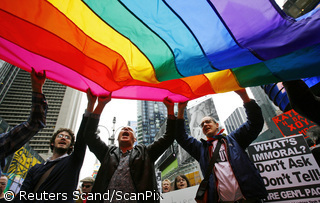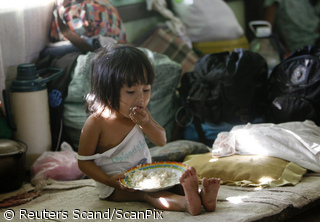Sri Lanka: Foreign minister calls for talks to end `futile' 17-year war.
Published:
18 May 2000 y., Thursday
Ending a lull in their separatist fight, rebels in Sri Lanka resumed an assault on their former stronghold of Jaffna on Tuesday, while the island's government said it was time to talk peace. Foreign Minister Lakshman Kadirgamar acknowledged that Vellupillai Prabhakaran, leader of the Tamil rebels, was fighting a ``good battle'' but said it was time to come to the peace table after 17 years of war.
The government's appeal for peace talks came less than a week after it had rejected a cease-fire to allow nearly 40,000 government soldiers to withdraw from the northern Jaffna Peninsula, which the rebels seek as part of a Tamil homeland. There was no comment on the government peace offer on the Tamil guerrillas' Web sites, but the latest update showed the rebels had resumed their attack on Jaffna after a three-day lull. The Web sites said the rebels had launched assaults on their former stronghold of Jaffna from two fronts and were within one mile of the city. Chief government information officer Ariya Rubasinghe said at least 40 rebels and six soldiers were killed in the clash that erupted late Monday and lasted nearly 12 hours. The fighting took place 2 1/2 miles southeast of the center of Jaffna, the base of Tamil culture and the largest city in the north, where most of the country's minority Tamils live. The Tamils claim they face discrimination from the Sinhalese majority, which controls the government and the military. The Tamil rebels are fighting for a separate homeland in northern Sri Lanka, an Indian Ocean nation off India formerly known as Ceylon. More than 62,000 people have been killed since fighting erupted in 1983.
Šaltinis:
Internet
Copying, publishing, announcing any information from the News.lt portal without written permission of News.lt editorial office is prohibited.
The most popular articles
 Tiwonge Chimbalanga and Steven Monjeza are married, but in Malawi homosexuality is banned.
more »
Tiwonge Chimbalanga and Steven Monjeza are married, but in Malawi homosexuality is banned.
more »
 The World Bank today launched the fourth book in the critically acclaimed Moving Out of Poverty series, which provides bottom up perspectives on poverty and local realities by over 60,000 people living in 500 communities in 15 countries.
more »
The World Bank today launched the fourth book in the critically acclaimed Moving Out of Poverty series, which provides bottom up perspectives on poverty and local realities by over 60,000 people living in 500 communities in 15 countries.
more »
 Ten years ago, European leaders pledged to end poverty in the EU by 2010. As this deadline approaches, the goal is still some way off.
more »
Ten years ago, European leaders pledged to end poverty in the EU by 2010. As this deadline approaches, the goal is still some way off.
more »
 For many 2009 will be a historic year with the coming into force of the Lisbon Treaty, the outcome of the Copenhagen summit and the inauguration of the first black US president.
more »
For many 2009 will be a historic year with the coming into force of the Lisbon Treaty, the outcome of the Copenhagen summit and the inauguration of the first black US president.
more »
 Not answering the phone, celebrating Hogmanay and reading Dickens' Christmas Carol are just three seasonal traditions that MEPs shared with us.
more »
Not answering the phone, celebrating Hogmanay and reading Dickens' Christmas Carol are just three seasonal traditions that MEPs shared with us.
more »
 More and more people make their homes and own property in EU countries other than the one in which they hold citizenship.
more »
More and more people make their homes and own property in EU countries other than the one in which they hold citizenship.
more »
 European Parliament President Jerzy Buzek has made an televised Christmas and New Year address to European citizens, looking ahead to the challenges of the coming year.
more »
European Parliament President Jerzy Buzek has made an televised Christmas and New Year address to European citizens, looking ahead to the challenges of the coming year.
more »
 Lithuania takes the 1st position in the EU by the number of students in the country.
more »
Lithuania takes the 1st position in the EU by the number of students in the country.
more »
 Sergei Kovalev, former political prisoner turned activist for Russian human rights group Memorial gave an emotional and heartfelt address to the European Parliament on Wednesday 16 December.
more »
Sergei Kovalev, former political prisoner turned activist for Russian human rights group Memorial gave an emotional and heartfelt address to the European Parliament on Wednesday 16 December.
more »
 Strengthened passenger rights for travel by bus are an important item on the agenda when the Transport, Telecommunications and Energy Council (TTE) meets on 17–18 December.
more »
Strengthened passenger rights for travel by bus are an important item on the agenda when the Transport, Telecommunications and Energy Council (TTE) meets on 17–18 December.
more »